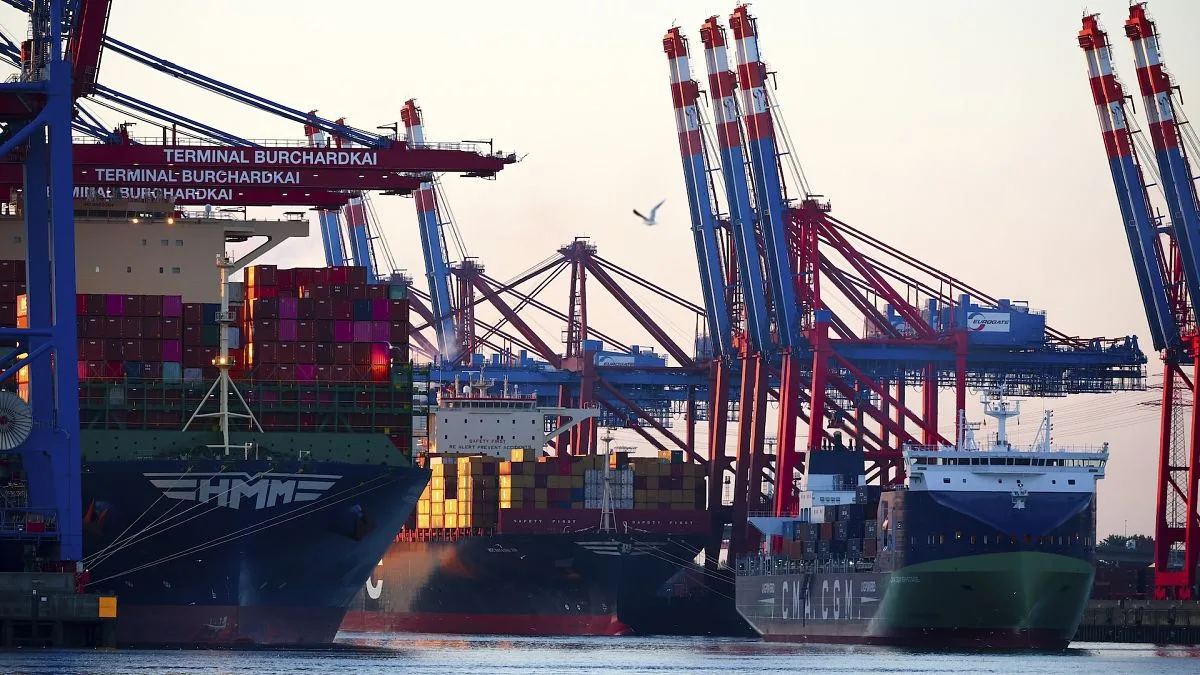The surge in October’s market sentiment can be attributed to rising expectations for interest rate cuts and an optimistic outlook on exports, even as the current economic perspective worsens. The DAX index achieved new record highs, spurred by declining oil prices and a weakening euro, significantly outperforming other European indices.
In Germany, economic sentiment took an unexpected turn for the better in October, experiencing a notable recovery from the low levels observed in September. The rebound is largely fueled by a renewed confidence in potential interest rate reductions and a more favorable export scenario.
This uplifting shift in sentiment, combined with the DAX’s historic performance, suggests a temporary respite from the persistent downward trend that has affected German economic confidence recently.
The ZEW Economic Sentiment Index, which gauges the expectations of financial market experts, rose to 13.1 points in October, up from only 3.6 points in September. This increase surpassed analysts’ projections of 10 points, showcasing a significant shift in expectations.
However, the evaluation of Germany’s current economic environment continues to decline. The corresponding index fell by 2.4 points, landing at a concerning minus 86.9 points. This indicates that, while optimism for the future is apparent, the present economic landscape remains bleak, with nearly 90% of survey participants expressing a negative outlook.
Despite this low starting point, the positive change in sentiment reflects a hopeful perspective, driven by expectations of stable inflation rates and further interest rate cuts by the European Central Bank (ECB).
Professor Achim Wambach, President of the ZEW, noted that encouraging signs from significant export markets like the United States, China, and the eurozone have played a role in this renewed optimism.
“The heightened optimism regarding China is likely tied to the Chinese government’s economic stimulus measures. These developments are likely contributing to the elevation in economic expectations for Germany,” he explained.
The broader eurozone outlook aligns closely with Germany’s, as the ZEW’s indicator for economic sentiment increased by 10.8 points, reaching 20.1 in October. This signifies a growing belief in the region’s resilience.
Nonetheless, the current situation in the eurozone remains grim, with assessments of current conditions dipping slightly by 0.4 points to minus 40.8.
DAX Reaches New Heights Amidst Weak Euro and Falling Oil Prices
The positive trends in economic sentiment were mirrored in the stock markets, with the DAX index achieving record highs. The index was buoyed by plunging oil prices and a depreciating euro, providing a necessary lift to Germany’s energy-dependent, export-oriented economy.
On that day, the DAX closed up by 0.3% at 19,600 points, surpassing its previous peak set in September.
Notably, MTU Aero Engines AG led the gains, with its stock price soaring over 4% after the company raised its earnings forecast for 2024 on the back of promising preliminary quarterly results.
Other notable performers included sportswear manufacturer Puma, utility company E.ON, and the sports giant Adidas, which saw their shares rise by 3.3%, 2%, and 1.3%, respectively.
In contrast, other European indices struggled; the Euro STOXX 50 fell by 0.4%, Milan’s FTSE MIB declined by 0.5%, and Paris’s CAC 40 dipped by 0.9%, largely due to weakness in the luxury sector.
Luxury brands in France, including LVMH, Kering, and Hermes, faced setbacks amid concerns stemming from a lack of communication concerning Chinese fiscal stimulus.
Brent crude oil prices also provided a boost to German equities, plummeting over 4% to $74 a barrel following reports suggesting Israel might pursue a limited military response, steering clear of attacks on Iranian energy infrastructure, as reported by the Washington Post.
Meanwhile, the euro continued to slip, depreciating to $1.09 on Tuesday—marking its 11th losing session in the past 13 trading days.
Investors are now eagerly anticipating the ECB’s upcoming meeting on Thursday, where another interest rate cut is anticipated. Such a move could further pressure the euro. Meanwhile, German Bund yields remained stable at 2.25%.
Photo credit & article inspired by: Euronews



